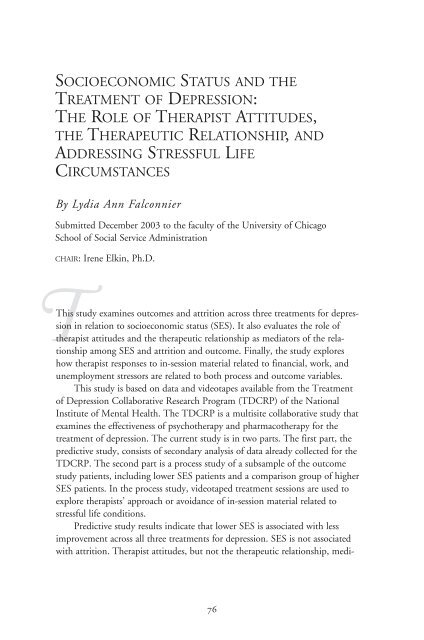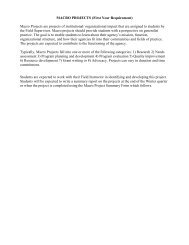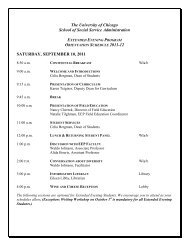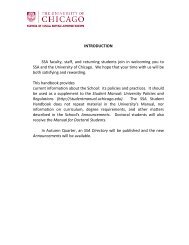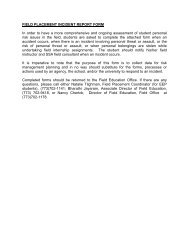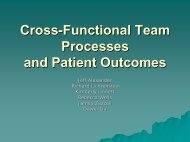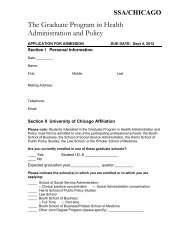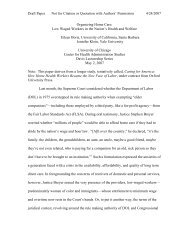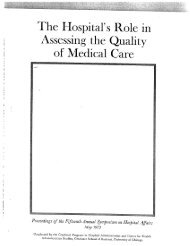2004 - School of Social Service Administration - University of Chicago
2004 - School of Social Service Administration - University of Chicago
2004 - School of Social Service Administration - University of Chicago
You also want an ePaper? Increase the reach of your titles
YUMPU automatically turns print PDFs into web optimized ePapers that Google loves.
SOCIOECONOMIC STATUS AND THE<br />
TREATMENT OF DEPRESSION:<br />
THE ROLE OF THERAPIST ATTITUDES,<br />
THE THERAPEUTIC RELATIONSHIP, AND<br />
ADDRESSING STRESSFUL LIFE<br />
CIRCUMSTANCES<br />
By Lydia Ann Falconnier<br />
Submitted December 2003 to the faculty <strong>of</strong> the <strong>University</strong> <strong>of</strong> <strong>Chicago</strong><br />
<strong>School</strong> <strong>of</strong> <strong>Social</strong> <strong>Service</strong> <strong>Administration</strong><br />
CHAIR: Irene Elkin, Ph.D.<br />
This study examines outcomes and attrition across three treatments for depression<br />
in relation to socioeconomic status (SES). It also evaluates the role <strong>of</strong><br />
therapist attitudes and the therapeutic relationship as mediators <strong>of</strong> the relationship<br />
among SES and attrition and outcome. Finally, the study explores<br />
how therapist responses to in-session material related to financial, work, and<br />
unemployment stressors are related to both process and outcome variables.<br />
This study is based on data and videotapes available from the Treatment<br />
<strong>of</strong> Depression Collaborative Research Program (TDCRP) <strong>of</strong> the National<br />
Institute <strong>of</strong> Mental Health. The TDCRP is a multisite collaborative study that<br />
examines the effectiveness <strong>of</strong> psychotherapy and pharmacotherapy for the<br />
treatment <strong>of</strong> depression. The current study is in two parts. The first part, the<br />
predictive study, consists <strong>of</strong> secondary analysis <strong>of</strong> data already collected for the<br />
TDCRP. The second part is a process study <strong>of</strong> a subsample <strong>of</strong> the outcome<br />
study patients, including lower SES patients and a comparison group <strong>of</strong> higher<br />
SES patients. In the process study, videotaped treatment sessions are used to<br />
explore therapists’ approach or avoidance <strong>of</strong> in-session material related to<br />
stressful life conditions.<br />
Predictive study results indicate that lower SES is associated with less<br />
improvement across all three treatments for depression. SES is not associated<br />
with attrition. Therapist attitudes, but not the therapeutic relationship, medi-<br />
76


